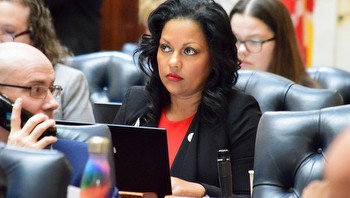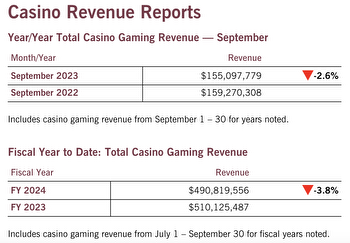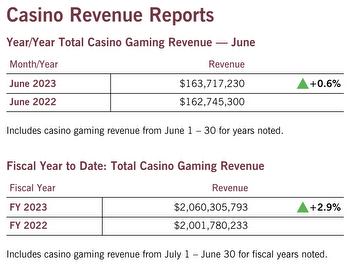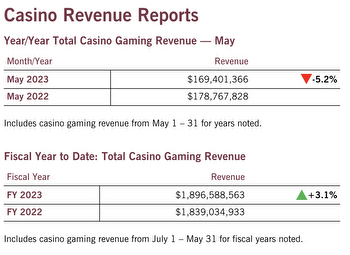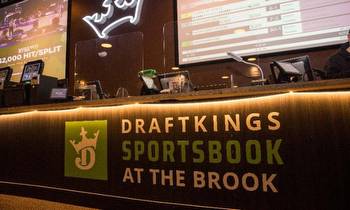Maryland eyes iGaming, prompting fears of more problem gambling

As Maryland’s sports wagering market continues to grow, attention has been turning to the state’s next betting frontier — iGaming, which involves wagering on virtual slot machines and other casino games.
The number of mobile sportsbooks in the state jumped to 11 in July and then reached 12 on Thursday, with license approval for Greenmount Station and its operator partner Parx Interactive, according to the Maryland Lottery and Gaming Control Agency, which oversees betting and casinos in the state. There are also 10 retail sportsbooks.
State lawmakers sought to set up internet gambling in the last legislative session, which wrapped up in April, but the bill never made it out of the committee to which it was assigned for a vote of passage.
Legislation for iGaming is expected to come up again in the 2024 session that begins in January.
“I would vote against that in a ‘New York Minute,’” said state Sen. Katherine Klausmeier, a Baltimore County Democrat. “It’s just too easy to lose money.”
Organizations that wrote in opposition to iGaming, including the National Council on Alcoholism and Drug Dependence of Maryland and the Maryland Center of Excellence on Problem Gambling, pointed to evidence that granting people access to casino games — including poker, blackjack and roulette — anywhere they have internet connection increases the prevalence of problem gambling.
Advocates for iGaming have said it would create a new education funding stream and boost state revenue through features like multi-jurisdictional gaming, which allows players from different states to compete in betting games, increasing the amount of money in the game.
The new market would also help the state capture profits from players using money apps and other forms of electronic payment to engage in private online gaming, Sen. Ronald Watson, a Prince George’s County Democrat who sponsored the iGaming bill, wrote in February.
The Lottery and Gaming Control Agency is expected to submit to state lawmakers by mid-November a report on iGaming in other states, the potential benefits of a legal iGaming market in Maryland and the impact it could have on problem gambling.
The previous internet gambling proposal would have allowed iGaming and multi-jurisdictional poker if voters approved a constitutional referendum.
Internet gambling companies would have directed 15% of their proceeds to a state fund for education.
In 2022, seven states allowed iGaming, including Delaware, Pennsylvania and West Virginia, according to the American Gaming Association. The others were Connecticut, Michigan, Nevada and New Jersey.
The state’s six casinos would be permitted to operate iGaming.
“Other potential operators do not have industry experience in this market and expanding to too many operators can dilute the business, making it difficult to be profitable,” Lottery and Gaming Control Agency Director John Martin wrote to lawmakers.
Martin also wrote that lawmakers could pass enabling legislation to allow for lottery betting online, or iLottery.
Lawmakers will have to identify funding for the Lottery and Gaming Control Agency to regulate iGaming operations, particularly to pay for staff members to conduct audits.
Klausmeier and other advocates for those suffering with a gambling addiction have said that, if lawmakers are going to pave the way for iGaming, they must also establish a reliable funding stream for addressing problem gambling.
While such a funding stream was part of the legalization of slot machines and table games at the state’s casinos, lawmakers left it out when implementing sports wagering.
The state has a fund that pays for a 24-hour helpline, an outreach program that includes a voluntary exclusion list, and treatment and prevention programs offered for free or at a reduced cost.
Lawmakers shied away last session from a proposal to contribute 1% of state proceeds from sports wagering to the problem gambling fund because it would have redirected money from the Blueprint for Maryland’s Future, a comprehensive education reform plan that increases funding for schools by $3.8 billion each year over the course of a decade.
Lawmakers are especially concerned about funding the education plan, considering the state is projected to reach a $1.8 billion deficit in 2027, in large part because the costs of the Blueprint are expected to outpace the money lawmakers have set aside for it.
Klausmeier, one of the lawmakers who led the charge to direct sports gambling revenue to the problem gambling fund, said she plans to push for it again next session — both for sports betting and iGaming.
“When we passed the sports wagering [bill], we should have said part of that money is going to problem gambling,” Klausmeier said. “We missed the boat.
“We won’t miss the boat this time,” she said of iGaming.












